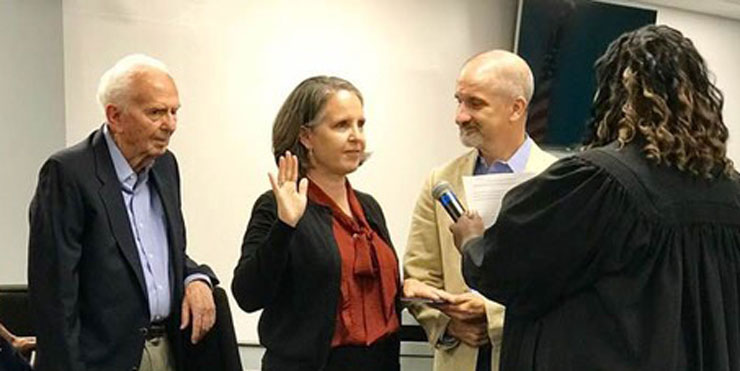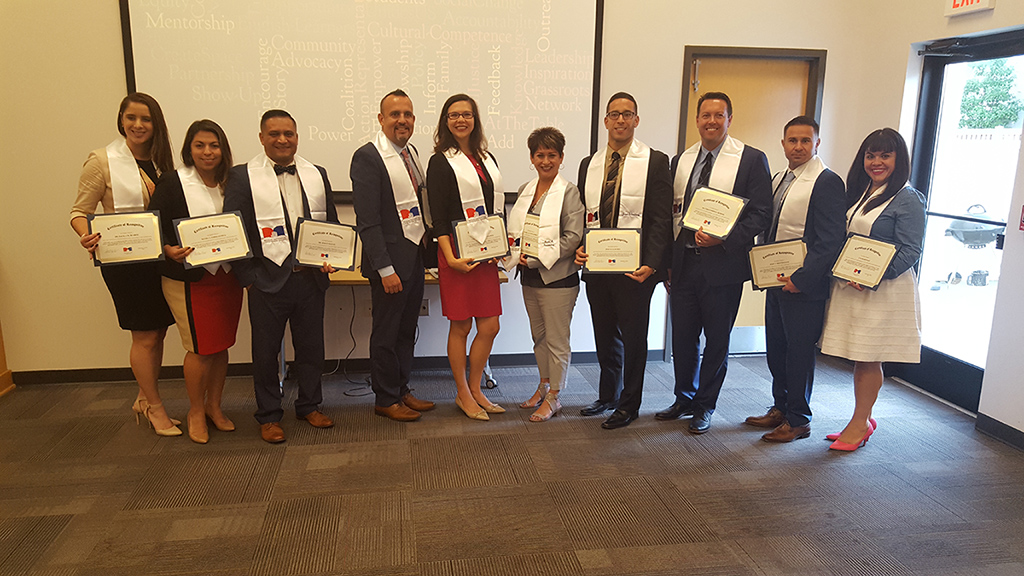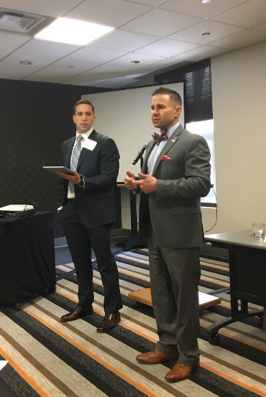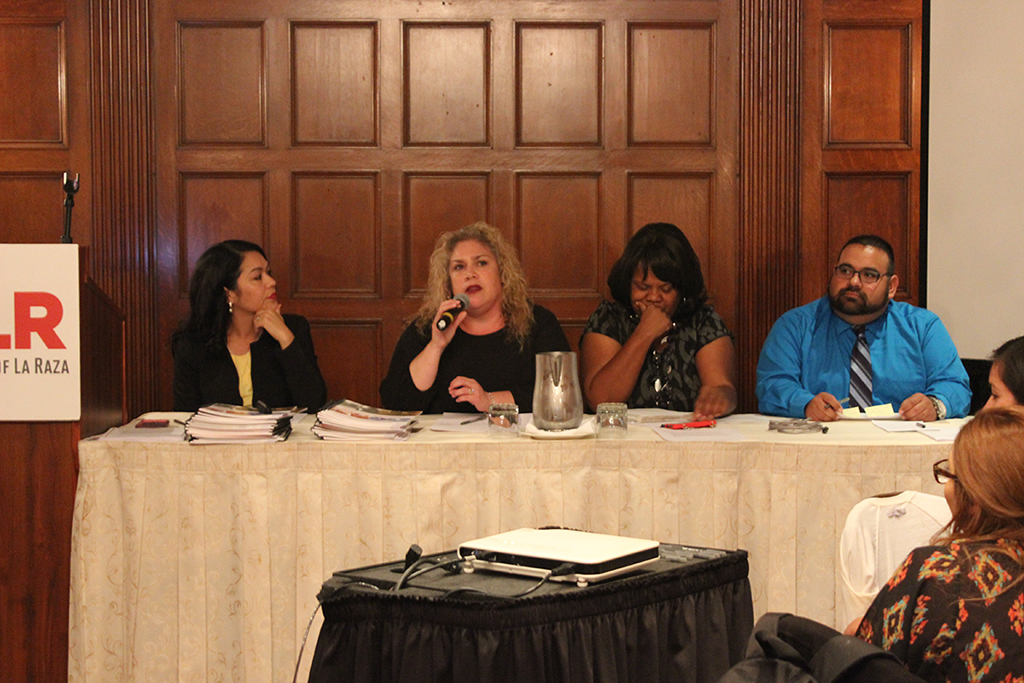A Latina Educator Takes a Stand by Taking a Seat on Nashville’s School Board
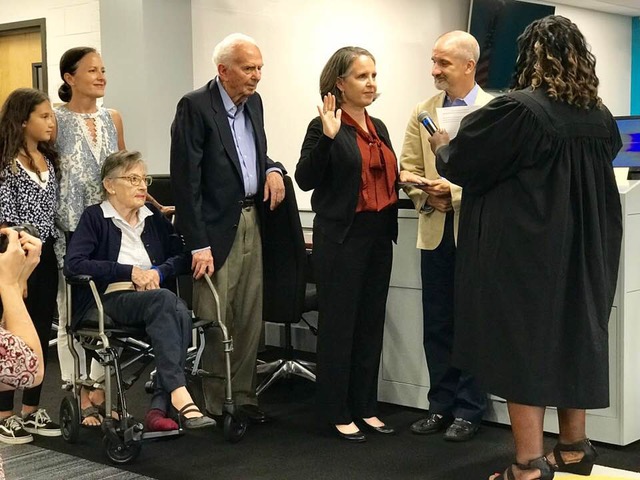
Nashville’s Metropolitan Board of Public Education kicks off its new session this month, with a big win for the Latino community—longtime educator Gini Pupo-Walker will become the first Latino ever elected to serve on a school board in the history of the state of Tennessee.
Pupo-Walker sees her new role as an opportunity to level the playing field for Latino youth and increase the visibility of their achievements.
“It’s not like we’re part of a secret Hispanic heritage assembly. Our accomplishments need to be shared. Every year we have Latino valedictorians, salutatorians—it’s really about shining a light on those kids and trying to change the narrative about our community.”
Pupo-Walker has worked tirelessly throughout her career to improve educational opportunities for Latinos and give the community a voice. Her husband jokes that her election to the school board has been two decades in the making. During that time, she helped the district promote bilingual education and implement Spanish heritage classes while serving as a high school Spanish teacher and administrator. She also worked to expand opportunities for students, in and out of the classroom, and for families in Nashville growing immigrant community.
For the past three years, she has worked with the local UnidosUS Affiliate Conexión Américas to build the region’s educational capacity. As the Senior Director of Education Policy and Programs, she helps to unite and strengthen the efforts of similar organizations working to improve the state of Tennessee’s educational policies, and as an advocate for Conexión Américas’ Parents as Partners program, she teaches parents how to navigate the school system in order to advocate for their children.
Pupo-Walker was also a member of the second cohort of UnidosUS’s National Institute for Latino School Leaders.
“I’m a big believer in the showing up—showing up at meetings, on task forces, helping promote Latino leaders, encouraging them to step in and serve on important committees—to make sure our voices are heard,” she says.
When an incumbent board member decided against running for reelection, Pupo-Walkerknew it was her time to step up for the community.
“I spent my entire career in education, and I was preaching the gospel telling people they need to run for office and get involved,” she says, adding that this year she looked in the mirror and realized this was the time to practice what she preached. “If not me, then who? I had the experience and the time because my kids are both off in college.”

LEVELING THE EDUCATIONAL PLAYING FIELD
Nashville Latinos becoming valedictorians and school board members are all signs of community success, but Pupo-Walker knows there’s still a long road ahead. Data from the 2016-2017 school year shows that students in Davidson County are 23 percent Latino and 18.9 percent English learners (ELs). Aswith other parts of the United States, the social, economic, and linguistic challenges Latinos face means they often struggle to get the extra attention they need to stay in school and perform according to the standards.
“There’s certainly a gap between Latino students and white students, or students of higher income,” she says, noting the gap is even higher for Latinas.
She attributes many of these concerns to the fact that Nashville’s Latino students are often clustered into low-income neighborhoods with teachers who don’t have the training and support needed to offer extra tutoring, parental guidance, and better strategies for meeting the needs of English learners, especially older students who might not absorb a new language as quickly as young children.
“We have to be more creative as a city, as a district, in serving those kids where they are when they come in the door,” she says.
PARENTS AS ADVOCATES
Pupo-Walker knows how vital it is for parents to be involved in their kids’ education and in the school systems created to provide it. In fact, her work with the Padres Comprometidos program places a heavy emphasis on giving parents the confidence they need to become better advocates. Many Latino parents may feel disenfranchised because of language barriers, busy schedules, discrimination, lack of knowledge about the school system, or fears about their immigration status, making it harder for them to want to engage teachers and administrators.
“It is believing in and starting with yourself, believing that you have not only the responsibility, but the right, and the role, to be your child’s first teacher, and to be your child’s best advocate,” says Pupo-Walker.
Sometimes the best way to start is just stepping into that uncomfortable space.
“If you’re going to be your child’s advocate, you must show up. Even if you don’t know all the players and you don’t know all the rules, and you don’t understand how things are done it’s just showing up and knowing that you have a right to be there and have a voice, and then asking for help,” she says.
Of course, grassroots initiatives like Parents as Partners can’t reach all the district’s parents, and that’s why she feels it was so important for her to run for and win a seat on the school board.
“It is a constant conversation that we keep having to have,” says Pupo-Walker. “Encouraging principals and teachers to welcome all families into their schools and treat them as partners.”
A CALL FOR STUDENTS TO STAND UP
Meanwhile, as Pupo-Walker takes a seat, she hopes Latino students will do just the opposite by standing up to discrimination and racism during a time of great political intolerance in America. Tennessee is a historically southern state, so it’s not uncommon for Latinos to be stereotypes as takers who don’t contribute to the economy and aren’t willing or interested in learning the predominant language and cultural norms.
“This is an incredibly difficult time to be an immigrant or children of immigrants in this country, probably the most difficult in our lifetime,” says Pupo-Walker. She says learning English, staying in school, focusing on academic achievement, and owning and being proud of one’s cultural heritage are some of the ways Latino youth can dispel those perceptions while raising awareness of the challenges their communities face in trying to integrate.
“Stand up, move into that gap and advocate for your community,” says Pupo-Walker. “There’s strength in numbers.”
And the more prepared those masses are, the more unstoppable they’ll be.
“You show up ready. That’s what I tell my staff,” says Pupo-Walker. “We need to be the most informed people in the room and then we can really do important work.”
– Author Jennifer Wennig is a freelance writer based in Portland, Oregon.


